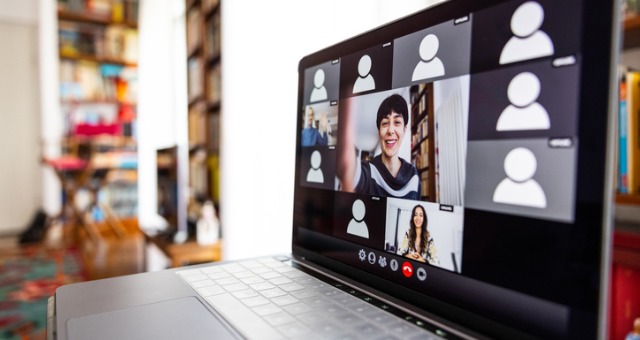This session occurred on Sept. 14. A recording of the session and slides are available.
Description:
In this webinar we’ll highlight partnerships and collaborative efforts aimed at helping library staff and patrons learn about the law and identify ways to effectively exercise user rights, such as fair use, when encountering copyright questions and issues.
Speakers:
My Summary:
Even though I had watched this session live, I decided to watch the entire recording and I'm glad I did. What stood out to me wasn't yet in my notes.
First, we need to create hubs of copyright knowledge in out institutions and across our institutions, which can answer copyright questions and provide support to each other. A hub of folks will be more able to answer questions from their pool of knowledge then just one person.
Second, copyright and fair use is a part of many positions in a library, e.g., reference, metadata, special collections. So you have several people who are each spending a little bit of time on copyright from their perspective.
Third, we need to train more people to handle copyright and fair use questions, so they are available to be the hubs we need. There is already a lot of copyright training available, both fee-based and free, so we don't need to create more. Rather we need to get people to take the training that is available and then use what they have learned. Pantalony spoke about the need to make training available without a fee, so there is no cost barrier. Some organizations can afford to not charge for their workshops, while others need to charge or to have their workshops funded in some way. However, yes, eliminating that barrier would allow more people to be trained and the more, the better.
Fourth, if you are someone with copyright knowledge in your institution, you should others in your institution who also have copyright knowledge and create your own hub. Share your knowledge. Tell each other what you continue to learn about copyright and fair use. Become a force for "copyright good" in your institution.
Notes:
Kyle Courtney:
- The village is filled with questions, e.g., fair use, public domain, licensing, and how to find materials to substitute for those you cannot use.
- How do you build expertise in the village?
- One people have some knowledge, have people use their knowledge. Offer scenarios and have people apply their own fair use analysis. Where did they fall? What did the courts do?
- Visualize the case, e.g., how does transformation occur?
- Fair use is a right - need to education people on this and do myth busting.
- Need to build a community around copyright and fair use
- Benson, Sara R. "Increasing Librarian Confidence and Comprehension in a Fair Use Training Session." portal: Libraries and the Academy, vol. 18 no. 4, 2018, p. 781-804. Project MUSE, doi:10.1353/pla.2018.0045.
- If you build a community, your front-line questions can get answered.
- Maximize the easy questions.
- More difficult questions have a community to handle them.
- The community can mitigate risk for the entire institution.
- If the training is successful, everyone gets a bit more knowledge.
- Internally your organization can build bench strength. Externally, you build connections to others and more copyright-knowledge hubs.
- "Can You Fair Use it?" - Knight grant to crowd-source fair use knowledge. Built a sustained understanding together.
Will Cross (who represented work he has done with Maria Bonn and Josh Bolick):
- Copyright Education in LIS: "Rare, elective, and haphazard" - true for copyright and true for scholarly communication also.
- Schmidt, Leetta & English, Michael. (2015). Copyright Instruction in LIS Programs: Report of a Survey of Standards in the U.S.A.. The Journal of Academic Librarianship. 41. 10.1016/j.acalib.2015.08.004.
- Working on an open textbook.
- Decisions need more than a textbook, because the answer can often be "it depends".
- The Scholarly Communications Notebook.
- The SCN has a community of curators, including Sara Benson, who focused on copyright.
- Building inclusive community resources - in the OER Commons copyright collection.
- This is a growing repository.
Dave Hansen:
- Currently with the Authors Alliance, a non-profit. The Authors Alliance has put together guides on publishing for writers regarding copyright and fair use.
- Developed the The Library Copyright Institute , http://library.copyright.institute/, while at Duke, in collaboration with three other institutions in North Carolina.
- Created to support libraries from all types of institutions.
- Specially aimed at supporting librarians at historically under-funded institutions, and minority serving institutions.
- Need to be responsible to what people say they actually need.
- Then grew the program to cover a larger geographic area.
- Moved from a in-person to a virtual event.
Rina Pantalony:
- OCEAN: Open Copyright Education Advisory Network
- A new online copyright educational initiative.
- For professionals working with cultural heritage collections
- In libraries, archives, and museums, and other like organizations
- Learning from each other.
- Identifies points of convergence in practice and addresses them practically.
- Did research in how copyright is being taught. Found that copyright is being taught repeated (e.g., copyright 101) by folks flying solo. Cultural heritage community needed an education strategy to archive scale.
- 2021 did an OCEAN pilot with LYRASIS. Each session has 90-minutes of instruction with live Q&A.
- Five course offerings:
- Copyright 101
- No Fear Fair Use: Practical Fair Use for Cultural Institutions
- Copyright Limitations and Exceptions
- Understanding the Public Domain
- Copyright in Action: An Introduction to Rights Metadata
- Over 1600 total registrants for the five classes
- More than 700 attended the free Copyright 101 class. The other courses had a nominal fee.
- Pilot takeaways
- Proven copyright educators result in high registration numbers.
- Presumption that there is no value in free is false.
- Remove financial barriers to education to achieve scale.
- More lost than gained in restricting access to recordings.
- Make them open.
- Make them free.
- Don't record the Q&A to allow participants to speak freely.
- Real value is found in interacting with educators in Q&A
- Workshops allow registrants to apply knowledge to facts to solve real world problems.
- Have moved beyond the pilot with five additional interactive sessions in spring 2022. Free.
- What is OCEAN and what do we plan to do?
- Deeds of Gift
- Negotiating permission for images
- How to work with the general counsel's office
- Rights reversion and termination of transfer
- Have scheduled five sessions for fall 2022 and have workshops in the works. Have some things scheduled for 2023.
- Look for save the date notices on the OCEAN website.
- Will be collaborating with CLIR going forward. Info to be announced soon.
Q&A
- How do you structure copyright support in smaller institutions?
- There are people in the library where copyright has become part of their jobs (e.g., metadata librarian). Getting them trained then creates a community of people who can answer copyright questions.
- Where are the copyright points of pain internally? Can librarians be part of the support network to address those points of pain?
- The network helps to support those with deep knowledge, because it lessens that person's need to answer every question.
- How do we get MSLIS students to take advantage of these copyright offerings?
- Could this learning happen earlier in a person's education?
- How early should copyright and fair use education begin? We are all creators.
- Can copyright knowledge become part of the ALA standards?
- Comment about getting copyright folks involved in teaching in MSLIS programs.
- Tip: Build a relationship with your institution's general counsel.
- Know that every attorney did not take an in-depth copyright course in law school, so they might appreciate knowing that you have copyright knowledge.

.png)
.png)
